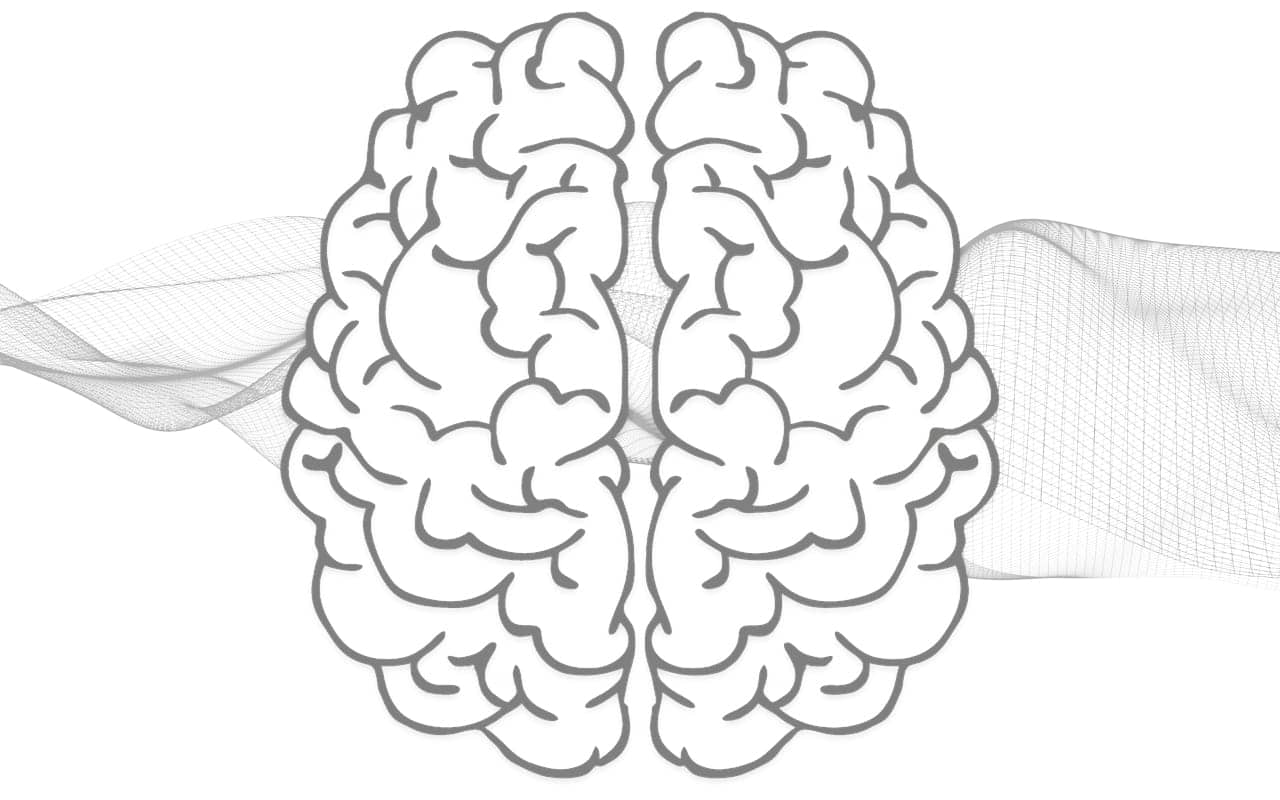Podcast: Download
Subscribe: Apple Podcasts | RSS
 My worst mental block happened back in 2008 while giving a lecture.
My worst mental block happened back in 2008 while giving a lecture.
I was standing behind the podium when a huge panic attack burst inside my chest.
Although I’m usually very good at remembering what I want to say, when I want to say it… during that moment, I found myself speechless.
I had no idea what I had just been talking about and couldn’t find the thread needed to get myself back on track.
Embarrassed beyond belief, I dismissed the class and retreated home. I decided I would never be caught cold like that again.
Fast-forward to February 2020. I made a small error while delivering a TEDx speech.
Using the techniques you’re about to discover, I rapidly recovered because I not only had the thread firmly in my hands. But overcoming mental blocks under pressure has become my speciality.
Are you ready for all my best tips?
Great! Let’s get started!
What is a Mental Block?
Mental blocks can be defined in a few different ways. But Tobore Onojighofia Tobore gives the best definition I’ve seen:
A memory block or mental block is the sudden inability to focus and remember due to a failure of learning and mental representation.
Tobore gives us an important way to think about this problem because mental blocks can happen to anyone, no matter how skilled or experienced you might be.
There are also levels of mental blocks a person can experience.
For example, think of the difference between writer’s block, when the person can’t write at all, and writing a bad book.
An experienced author should know better than to produce second-rate work, yet even Stephen King has admitted in On Writing that he’s capable of producing a dud. He may not have been blocked from writing altogether, but something in his brain failed to remember what makes a story great.
Likewise, a student can show up to an exam and often remember enough to answer the questions. But they might struggle to recall the nuances that make the difference between a C+ and an A.
Tobore thinks that it boils down to the strength of your neuronal connections and their resistance to disruption.
The 5 Main Mental Block Causes
If Tobore is correct (and I think he is), this means that the typical explanations for why we experience mental blocks are incorrect.
Typically, we’re told that we experience them when we’re:
- Overwhelmed
- Tired
- Stressed
- Unrested
Although these states certainly can contribute to poor focus and an inability to access memory (stress in particular), they are not strong explanations.
We know this because many people who play Jeopardy, act on stage or give speeches face all of these factors and yet still perform well. Athletes also have to access procedural memory under grueling conditions, so it just doesn’t make sense that these oft-cited factors are to blame.
I know from personal experience that they aren’t to blame because I often perform perfectly well despite suffering all of the above issues, including chronic pain.
So if we can’t point the finger at those issues, what factors do reliably explain our mental blocks when we have them?
One: Lack of Preparation
Most people experience blocks because they simply haven’t prepared themselves thoroughly enough.
They may have skimmed or scanned books instead of reading them thoroughly. Sloppy reading prevents the brain from forming enough connections to frame a complete enough picture. Instead of a study foundation, you wind up with mental sand that easily blows away in the wind.
When I had my panic attack in front of the lecture hall, I was still a rookie. A huge part of my problem was that I hadn’t put a lot of thought into how I was going to end the lecture. I was okay up until the close and thought I could wing it. But I was wrong and that led to me experiencing a massive mental block.
Two: Lack of Practice
As a professor, I’ve marked hundreds of exams and essays.
It’s easy to spot the work of students who have put in the practice and those who have not.
When I myself had field exams and a dissertation defense to pass before getting my Phd, I practiced each and every one. It was as simple as getting friends to test me and following the rules around what is called dedicated pactice.
Performance-wise, when I gave my TEDx Talk, I wasn’t feeling all that well. But it didn’t matter because I’d practiced reciting the talk multiple times. I’d even memorized it and written it out by hand three times to make sure I knew it inside and out.
That way, no matter how tired, overwhelmed or stressed I felt, I knew I could rely on memory consolidation alone both in terms of the procedural memory of delivering the talk and semantic memory of the words and phrases.
Three: Communication Challenges
Some people have congenital issues or brain disease. For example, some people might suffer from aphasia and need to be trained to rely on formulaic speech patterns. But because the flows of normal speech are not necessarily tidy, people with these issues can quickly find themselves blocked.
Although you could interpret such situations as “overwhelm,” it is a very specific kind of overwhelm based on the fact that parts of the brain have been impaired.
Looking back at the panic attack I had in the lecture hall, it happened during a time when I did a lot of drinking. This left my brain dehydrated and because I privileged alcohol over nutritious food, it’s little wonder I couldn’t even innovate a conclusion to my talk that day.
Four: Focusing On The Block
It’s easy to get caught like a deer in headlights when a mental block arises. Instead of easing your way out of it, you wind up doubling down on the symptoms. This happens because your brain focuses on the problem instead of possible solutions.
Options include:
- Taking a few deep breaths
- Getting a drink of water and/or a snack
- Taking a walk or stretching
If you’re in an exam, you might be pleasantly surprised by how generous your examiner might be if you need to take a break. But if you hyper-focus on the problem, you might not even think about asking.
In the case of my lecture, I could have easily excused myself for a moment and used a few breathwork routines I knew to bring myself back to center. I was too involved in the panic attack itself to even think about pursuing this possible solution.
You might doubt that taking a few deep breaths will help. However, studies have shown that there’s a relationship between breathing and memory formation.
Five: Negative Patterns
Related to focusing on the mental block itself, it’s easy to repeat negative thoughts that make the problem worse.
For example, students often tell themselves during exams, “I don’t know this!” They repeat the statement like a mantra instead of moving on to the next question and coming back to where they’re blocked.
Even as a person experienced at speaking and taking multiple exams, that day in the lecture hall, I found myself repeating, “I’m freaking out!”
Although it can be good to acknowledge whatever state you’re in, you need to label it as fear, not participate in the fear. This is an important finding of cognitive behavior therapy (CBT), which reveals that people are often more afraid of the fear itself compared to the fear of failing or looking silly because they forget what they were going to say.
Research in this area is relatively new, but some researchers have found that practicing giving public talks in a virtual reality environment can help people with public speaking anxiety learn not to get into such mental downward spirals just as well as CBT. Such findings substantiate Tobere’s argument that mental blocks ultimately come down to the strength of memory consolidation at the cellular level because strong neural connections help prevent falling into the spiral in the first place.
How to Overcome A Memory Block in 9 Steps
Now that you know what really causes mental blocks, let’s look at removing them on demand. These suggestions will work no matter how overwhelmed or stressed you might find yourself.
Do they require extra effort?
Sure.
But at the end of the day, it’s usually the absence of effort that leads to the problem in the first palace.
And since you’re here, you obviously want to be a top performer. Let me share my best solutions, earned from the trenches of having suffered myself from mental blocks.
If some of my solutions seem quirky, it’s because things like getting enough sleep or chatting with friends just weren’t options for me.
One: Plan Ahead and Finish Early
I suffered anxiety for many decades, not just during my first years as a university professor.
As an undergrad, one of my go-to strategies for making sure I got top grades involved discovering what would be required of me as far ahead as possible.
To do this, the moment I knew what courses I would be taking, I would email my professor and ask for the course syllabi. They weren’t always willing to give them ahead of the class start day, but often enough they would.
Then, I would get the exam and assignment dates on my calendar and start reading. In courses where I had to wait for the start to get this information, I would immediately add those dates.
Because I usually worked at least one, but sometimes two or more jobs while studying, I reduced my stress and overwhelm by starting the essay assignments early. When professors were receptive to it, I would hand them in early as well and try to get advance feedback. That way I could improve them before the due date and get even better grades.
This might seem over the top, but the top grades I earned helped in earning scholarships that kept my student debt as low as possible. As a result, I had much less stress.
Two: Customize the Questions
In my last year as an undergrad, I was required to complete a fourth year level course in Romantic literature.
I loved the topic, but for some reason, the professor was hard on me. When I asked for an alternative assignment to giving an oral presentation because I was still getting used to shaking from lithium I had to take, he made me spend my precious study time getting a letter to prove that I had the issue. And he wouldn’t accept the letter from my doctor. He wanted it from a counselor at the university’s Behavioral Sciences department.
When I finally got the alternative assignment, he made me read Goethe novels that were 3x longer than the material I would have read for the oral assignment. This meant that I had less study time for the final exam in the course.
During the final exam, I was unprepared for an entire question on a play called Cain by Lord Byron. Rather than leave the question blank and accept a zero for such a huge portion of the exam, I scratched out the question. In its place, I wrote, “Explain the difference between Coleridge and Wordsworth’s approaches to Romanticism.”
I’d relied on this tactic a few times before and thought for sure that this particular professor would still give me a zero. But as things turned out, I passed the course with an A.
Three: Learn and Practice Depth Relaxation
I have been interested in meditation since high school. But it wasn’t until my PhD years that I really got into practicing it seriously. And as part of my research into friendship, I took a course to become a certified hypnotherapist, largely to explore the role of persuasion in friendship.
In the hypnotherapy program, I learned to relax myself deeply on demand. The guided visualizations I learned to create for myself were golden. I still struggled with panic attacks from time to time, largely because I still drank and would sometimes show up unprepared, but overall, I enjoyed a much more relaxed life.
One thing that I’ve found tremendously helpful is to relax while studying. Like Pavlovian conditioning, it seems to help bring the feeling of relaxation back when drawing upon the material. Although not entirely scientific, the advantage this brings possibly relates to what is called context dependent memory.
Four: Expand Your Context
One reason we experience memory blocks that we can’t get out of is that we simply don’t have a wide enough frame of reference.
But by expanding what we know through effective reading strategies, we’re less likely to get blocked in the first place. Our minds will find related topics to discuss or near-substitutes.
All people get mentally blocked, but if you watch enough smart people give talks or interviews, you’ll notice that they are expert at finding detours when the perfect answer doesn’t immediately come to mind.
And the best speakers of all will use rhetorical devices. For example, they’ll say, “I’ll get back to this in a moment, but let me first talk about _____.” Often, when an expert uses a phrase like this, it’s because they’re buying time.
Five: Place the Focus Elsewhere
Although I’m a memory expert, I sometimes can’t find the word or reference I’m looking for. When this happens, I simply call a spade a spade and say, “It will come back to me.”
Usually, simply by being willing to admit what’s going on in my mind and focus for a moment on something else, the original thought I was looking for pops up on its own.
Six: Consult the Alphabet
Sometimes when I can’t find the names of people I’m looking for, I choose a simple strategy instead of getting frustated.
It happened to me today, for example. I was thinking about Dan Harlan, and for some reason, his last name just wouldn’t come to me.
Why?
Well, I was tired. Hungry. And frankly, I had no particular big reason why I needed his name at that moment.
Nonetheless, I’m a person who works on my memory, so I wanted to remember it.
One of my favorite tactics to nudge such information out of memory is to simply run through the alphabet. Like this:
- Dan A…?
- Dan B…?
- Dan C…?
- Etc.
I actually went past H without getting it, but it wasn’t much further before his last name popped into my mind.
The next step is to use memory techniques, which we’ll discuss next.
Seven: Use Memory Techniques
That said, if you use the Memory Palace technique effectively, such mental blocks will happen to you much less frequently.
The trick is to use the technique properly. It’s a real skill and like other skills, can only serve you to the extent that you master it. If you need help learning to use it, register for this free course:
In it, I’ll guide you through a number of simple exercises and steps to follow so that you have multiple Memory Palaces.
Here’s a simple use case:
To make the name Dan Harlan stronger so I get it more immediately the next time, he is placed in a Memory Palace. In this case, it’s a building I’m aware of in Harlem, New York.
I imagine him standing out side of this location with a giant harpoon. I choose this image because harpoon has the Harlan sound in it.
Then I have him harpooning a LAN Internet device with a Lando sticker on it (the character from Star Wars) in that location. After visiting this association a few times, Dan Harlan’s name should come back with much greater ease in the future.
Eight: Use Other Accelerated Learning Techniques
There’s a vast world of tactics you can use in addition to memory techniques. You can learn to read faster and mind map, to take just a few examples.
However, don’t be a dabbler. None of these techniques will help much if you don’t pay them their due. And that’s why the next point is so important.
Nine: Practice Thoroughly
As I mentioned above, I’ve spent a lot of time practicing for exams and presentations.
When it comes to practice, the amount of time you practice usually isn’t as important as what you practice during the time you have.
Plus, you have to think deeply about the exact area you need practice in. How you practice for taking tests will be different from practicing to give a speech or to perform a magic trick.
Know what the masters in your field practice and model them so that you know you’re maximizing the time you have at your disposal.
By getting out there and taking the exams or giving speeches from memory, you’ll give yourself important frames of reference. If you don’t make mistakes, it’s hard to see what to improve.
Ten: Develop the Right Attitude
In The Positive Mental Attitude Pocketbook, Douglas Miller talks about having “firelighters.”
These help you stop mental blocks and get back on track. They include:
- Avoiding limiting descriptions of yourself, (i.e. I’m a failure)
- Find the source of the problem
- Evaluate the situation from a broad perspective
- Don’t let one failure derail you completely
- Expect future success
Each of these points have helped me tremendously. Whereas I used to repeat negative phrases about myself compulsively, now I recite positive Sanskrit phrases I’ve memorized instead. Instead of thinking the smallest failure is the end of the world, I zoom out and think of all human and cosmological history and how my life is merely a speck in the grand scheme of things.
And regular readers of this blog might find this surprising, but I not only expect future success. I expect and embrace future failure too.
I know that mental blocks are coming, but I keep moving forward anyway. Case in point:
At the very end of my Read with Momentum program, I was tired after seven hours of live streaming. I probably shouldn’t have tried a memory demonstration, but I believe in taking my best shot anyway.
Names had come up, and to help answer some questions for Robert, I pulled up a software used by some memory competitors.
Now, I actually didn’t do that bad when I typed out the names, but I made a critical error. I was so hyper-focused on encoding the names that I didn’t pay attention to the faces on the screen. But instead of getting blocked by this obvious failure, I opened a new tab and typed out what I remembered anyway.
I fully expect that if I’m going to continue this work, I’ll wind up making “errors” like this in the future. It’s just part of what’s involved in memory as an art, craft and science.
But if you have the right attitude and expectations, you’ll always learn from whatever happens. And in the future, you can use those past experiences as “firelighters,” as Miller calls them.
Say GoodBye To Memory Blocks
We’ve talked about a lot of circumstances in which you can experience a mental block or temporary memory loss.
A subtheme throughout today’s tutorial is that life itself is a kind of exam.
When you treat it that way, and always show up prepared to do your best, you’ll do so much better.
As a final thought, I would suggest that you be willing to let go of the outcome. As I often tell my memory students in the Magnetic Memory Method Masterclass, you have to be like a samurai. You have to be prepared to execute one final perfect move, even with your head cut off.
In the memory demonstration that failed, I did my best to squeeze in one more name than I thought I could.
Although I wasn’t able to place the names next to the faces, the names I did recall were mostly correct. And I had one syllable for one last name that I hadn’t even mentioned during the demonstration.
True, the demonstration was far from perfect. But the one last move, the one I made while admitting my head had been cut off, produced an audible gasp.
But it was only possible for me to have the guts to make such a mistake in front of so many people because I am willing to let go of the outcome.
And if you want to stop mental blocks from holding you back, I suggest you cultivate this skill too. When you do, you’ll develop the reinforced mental representations Tobore’s research has discovered. In other words, the more you practice being your best possible self, the easier it will be for that person to emerge, fully knowledgeable and perfectly capable, even when the chips are down.
So what do you say? Are you ready to treat life itself like an exam and show up with your best possible attitude?
Related Posts
- MMMP 009: Memory Training Consumer Awareness Guide
Here's an audio presentation of The Magnetic Memory Method "Memory Training Consumer Awareness Guide."
- Memory Improvement Techniques For Kids
You're never too young to get started with memory techniques
- Surviving PTSD With The Help of Memory Techniques Featuring Nicholas Castle
Nicholas Castle used memory training and memory techniques to help heal his PTSD. Listen to…














